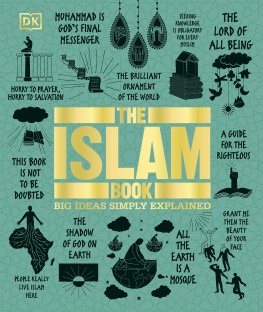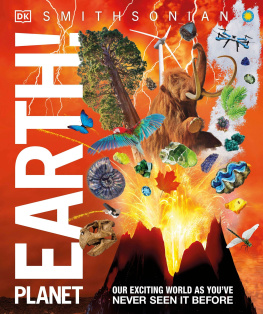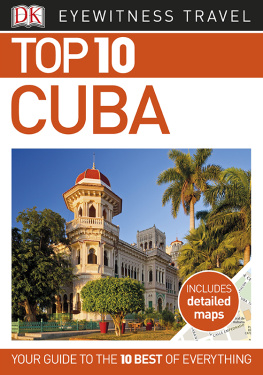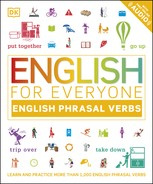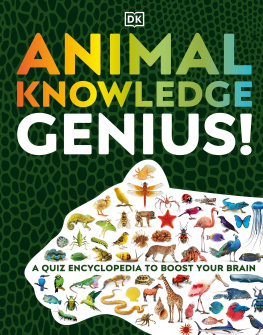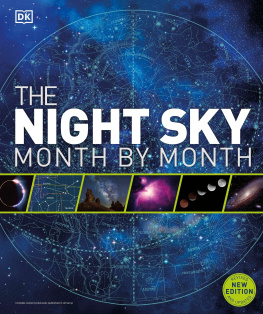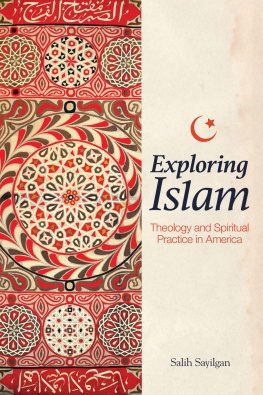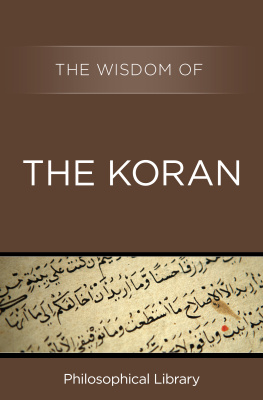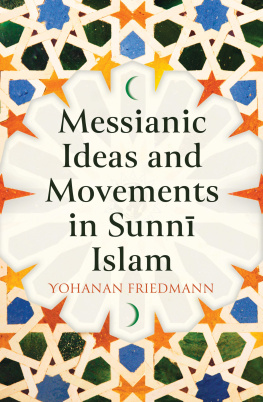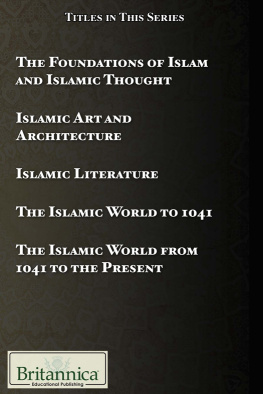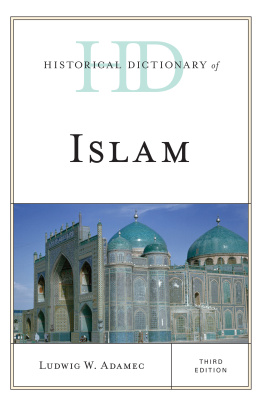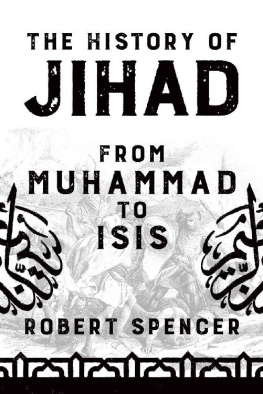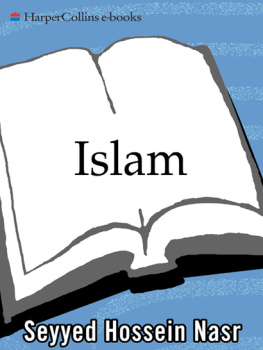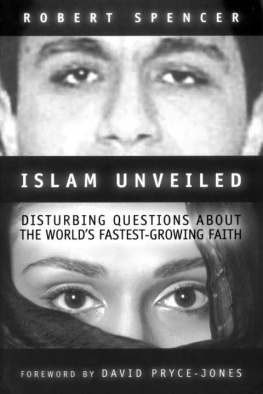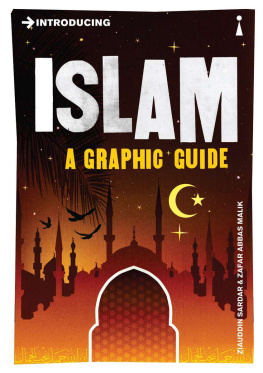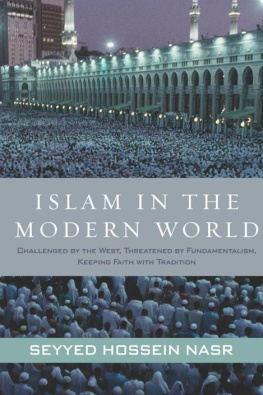CONTRIBUTORS
RAGEH OMAAR, FOREWORD
Rageh Omaar made his name as the BBC correspondent reporting from Baghdad during the 2003 invasion of Iraq. He also reported from Afghanistan, the Middle East, and Africa for the BBC as a foreign correspondent. He later worked for Al Jazeera English, before, in January 2013, joining ITV News where he is International Affairs Editor and host of Britains iconic News at Ten program. Rageh has also made numerous documentary series for British national television including BBCs The Life of Muhammad. He is also the author of Revolution Day: The Real Story of the Battle for Iraq (2005) and Only Half of Me: Being a Muslim in Britain (2006).
DR. FARHAD DAFTARY, CONSULTANT
Dr. Daftary is an authority in Shia studies, in particular the Ismaili tradition. He has written more than 200 articles and encyclopedia entries, and many acclaimed books, including A History of Shii Islam (2013). Books on which he has acted as editor include Islam: An Illustrated Journey (2018). He is co-director and head of the Department of Academic Research and Publications at The Institute of Ismaili Studies, in London.
AYA KHALIL, CONSULTANT
An American-Egyptian, Aya Khalil holds a masters degree in education and is the author of the picture book The Arabic Quilt: An Immigrant Story. As a journalist focusing on Muslim-related issues, her writing has been published in The Huffington Post and The Christian Science Monitor, and on the popular website MuslimGirl.com. She blogs regularly on Muslim-related issues, posting stories on topics such as 10 Words & Phrases to Avoid if Youre #FlyingWhileMuslim.
IBRAHIM MOGRA, CONSULTANT
Ibrahim Mogra is an imam and the director of Mogra Faith & Culture Consultancy Limited, and a member of The Muslim Council of Britain. In 2016, he received the Hubert Walter Award for Reconciliation and Interfaith Cooperation from the Archbishop of Canterbury for his sustained contribution to understanding between the Abrahamic faiths. He has edited and contributed to a number of religious education textbooks and has written a teachers handbook on Islam.
SALMA HAIDRANI
A multi-award-winning freelance writer and journalist based in London, Salma Haidrani has written for i-D, Vice, Dazed, HUNGER, and GQ magazines on topics including contemporary faith and identity, womens rights, social issues, and marginalized communities. She is also a contributing author to the best-selling anthology Its Not About the Burqa: Muslim Women on Faith, Feminism, Sexuality and Race (2019).
ANDREW HAMMOND
A former journalist with BBC Arabic radio, and Reuters in Egypt, Saudi Arabia, and the United Arab Emirates, Andrew Hammond later became a Middle East policy analyst with the European Council on Foreign Relations (ECFR). He is also an Islamic historian, who studied Arabic at Londons School of Oriental and African Studies, and Turkish and Ottoman at Oxford University, where he obtained his doctorate. His books include The Islamic Utopia: The Illusion of Reform in Saudi Arabia (2012) and Popular Culture in North Africa and the Middle East (2017).
ANDREW HUMPHREYS
Journalist, author, and editor Andrew Humphreys has worked in Egypt, Central Asia, India, Morocco, Syria, and Turkey. He was the cofounder and editor-in-chief of The Cairo Times newspaper, and his journalism has appeared in the UKs Financial Times, The Sunday Times, and The Telegraph. He is the author of two books on 19th-century Egypt, published by the American University in Cairo Press.
SHELINA JANMOHAMED
Shelina Janmohamed is the vice president of Islamic marketing at global advertising and marketing agency Ogilvy. She is the author of Love in a Headscarf (2009), a memoir of growing up as a British Muslim woman, and Generation M: Young Muslims Changing the World (2016), described as a defining text on a Muslim generation bringing faith and modernity together. In 2009, she was named one of the UKs 100 most powerful Muslim women by the Equality and Human Rights Commission (EHRC).
CHARLES TIESZEN
Charles Tieszen, PhD (University of Birmingham, 2010) is an historian of religious thought. A fellow of the Royal Historical Society, his work focuses on the historical development of Islamic thought and the history of relationships between Muslim and non-Muslim communities. His most recent book is called The Christian Encounter with Muhammad.
DR. COLIN TURNER
Dr. Colin Turner is director and chief executive officer of the International Foundation for Muslim Theology and was, until 2017, Reader in Islamic Thought at the University of Durham. A trained historian, his chief areas of interest are Muslim theology, Quranic interpretation, and the life and works of Bediuzzaman Said Nursi. He is the author of numerous books and articles, including the best-selling Islam: The Basics (2005) and The Quran Revealed: A Critical Analysis of Said Nursis Epistles of Light (2013).
DR. MAHSHID TURNER
Director of the International Foundation for Muslim Theology, Dr. Mahshid Turner is a freelance researcher and lecturer. Trained in theology at the University of Durham, she publishes on Muslim theology, philosophy, and Quranic interpretation. She is the first female Muslim chaplain at a British university, having served at the University of Durham in that capacity since 2015.
FOREWORD
At the start of the 7th century CE , a man who had just turned 40, a man who had grown up an orphan, clambered up a barren, rocky hillside to reach a cave in a valley near Mecca, an important city for trade and the worship of numerous deities in the Arabian desert. Such retreats were something he had often undertaken for contemplation and solitude. It was up here that, one day, he received his very first revelation from the angel Gabriel, known as Jibreel in Arabicit was one simple word: Read. Gripped by fear and overcome with emotion, he responded, saying, But I dont know how to read. Again, the divine order came: Read. Then, miraculously, having not thought himself capable, he began to recite the first words of a new holy book. That man, Muhammad, would go on to become the Prophet, and the revelation that started in the Cave of Hira would become known as the Quran, the holy book of Islamthe religion followed by an estimated 1.8 billion people across the world.

